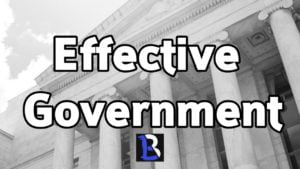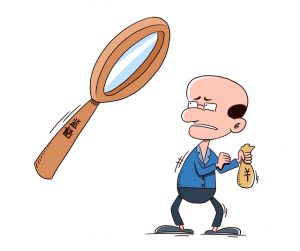Characteristics/Features of Presidential System of Government: It could be challenging to define government as different people do have their own understanding as to what a government is. Government could be defined as a group of people who come together to control the resources of a country and to make decisions for the country or the state. It could also be defined as a particularly system which is being used to control a state or a county.
A government consists of the legislature, the executives, and the judiciary. These arms of government see to the appropriate governance of the country.
Government is the process in which organizational activities of the country are being enforced, as well as the mechanism for determining the right policy. Each government has its system of governance and it ranges from one country to another.
Recommended: List of Countries with an uncodified constitution
The systems of government we have are:
a. Democratic system of government
b. Presidential system of government
c. Oligarchy system of government
d. Autocratic system of government
e. Parliamentary system of government
f. Military system of government
g. Monarchical system of government
h. Federal system of government
i. Socialist system of government
j. Noocratic system of government
k. Republican system of government
Meaning of Presidential System of Government
A presidential system of government is simply put as the system of Government in which the president is constitutionally independent from the legislature.

A presidential system of Government which is also known as a single executive system of government is a form of government in which the president (head of government) controls the executive branch of the government which is independent from the legislative branch (in systems that use separation of government). The president as the head of state also in most cases is also the head of government. The title for the head of state and head of government which is “the president” has persisted from a time when such person has only preceded over the governing body.
In presidential countries, the president is elected by the citizens and he is not responsible to the legislatures which under normal circumstances cannot dismiss the president. However, the dismissal of the president is possible by the legislatures based on some conditions and it is usually done by impeachment of the president.
The presidential system of government is always being contrasted with the parliamentary system of government which is found in some countries of the world. The parliamentary system of government is a type of system of government where the government comes into power by gaining the confidence of the elected legislature.
Recommended: Types and forms of government
Characteristics of Presidential Government
1. Single Executive: In a presidential system of Government, one of the features is the existence of a single executive which means that the executive arm of the government is headed by a single person who is the head of state and the head of the government which means he performs both the ceremonial functions and the governmental functions, he is known as the president.

2. Fixed Term of Office: In a presidential system of government, the president is elected for a particular term of office, which differs in countries as each country has a different constitution; it is usually four years but it could also be five or seven in other countries. The president is therefore elected for a constitutionally accepted fixed term in office.
The elections which are held periodically cannot be triggered by a vote of confidence or other parliamentary procedures, however, in some countries; there is provision for an exception which provides for the express removal of the president who has broken the law. The tenure of the president could be renewed after the fixed year but after the renewal, he would be let out of office.
Also see: Differences between a deed and an agreement
3. Executive accountability: The president is always directly elected by the people (citizens), hence the president drives his mandate from the people, and he is accountable to them directly for his actions and in-actions in office.

4. Recognized Opposition: Another feature of the presidential system of government is that the role of the opposition is clear; it is expressly stated by the constitution. Party discipline is, therefore, not very strong.
5. Supremacy of the Constitution: In a presidential system of government, the constitution is the supreme law of the land. Anyone who exercises his powers outside the constitutional mandate is deemed to be in contravention of the constitution. Such actions would be nullified by the judiciary.
Recommended: Advantages and Disadvantages of a written constitution
6. Executive Branch of the Government is Unipersonal: The members of the presidential candidate serve at the command of the president and must carry out the rules of the executive and legislative branches. The Cabinet ministers or executive departmental chiefs are not members of the legislature.
The presidential system of government, the president often needs the approval of the legislature of the executive nominations of the cabinet, judiciary, and various lower governmental posts. A president can generally direct the military, members of the cabinet, or any officer or employee of the executive branch, but cannot dismiss the judges or direct them.
7. Checks and Balances: Another feature of the presidential system of government is the principle of checks and balances. An example of checks and balances is the right to veto power. The veto power was derived traditionally from the British tradition of royal assent, in which the parliament could only be enacted with the assent of the monarch. The president (executives) could veto legislatives acts and actions, and in return, a great majority of the legislative arm of government could override the veto.

An instance of the exercise of veto power is in US, the President can veto the Acts of the Congress, and the legislature could remove or impeach and remove the Federal Judges and the President of the federation, while the judiciary can declare a law an unconstitutional law through the process of judicial review.
Also see: Major reasons for the colonization of Africa
8. Presidential Pardon: A feature of a presidential system of government is presidential pardon. A president can grant pardon to a convict who has a life sentence, death sentence or a long sentence and this is solely at his own discretion.
9. Separation of Power: The principle of separation of power solely vests in the presidential system of government as powers are shared between the Executives, Legislatures, and the Judiciary. These arms of government a separate from each other but they see to the smooth running of the government.
The legislatures who are the law makers make sure to make and amend the law of the state or country. The executives execute these laws by putting everything in place through their different departments while the judiciary in simple terms, punish the offenders or the law breakers.
Also see: Most dangerous countries in the world today
10. Power of Appointment and Execution: Another feature of the presidential system of government is that the president has the power to appoint Supreme Court judges, (the highest members of the judiciary).
Also the president has the right to sign a bill into law; however, this right is not a supreme right being that when the president refuses to sign a bill into law, the legislatures can execute such law by a two third majority of the executive house.
In conclusion, the presidential system of government could be said to be one of the best system of government as it always run together with the democratic system of government.

Edeh Samuel Chukwuemeka, ACMC, is a lawyer and a certified mediator/conciliator in Nigeria. He is also a developer with knowledge in various programming languages. Samuel is determined to leverage his skills in technology, SEO, and legal practice to revolutionize the legal profession worldwide by creating web and mobile applications that simplify legal research. Sam is also passionate about educating and providing valuable information to people.